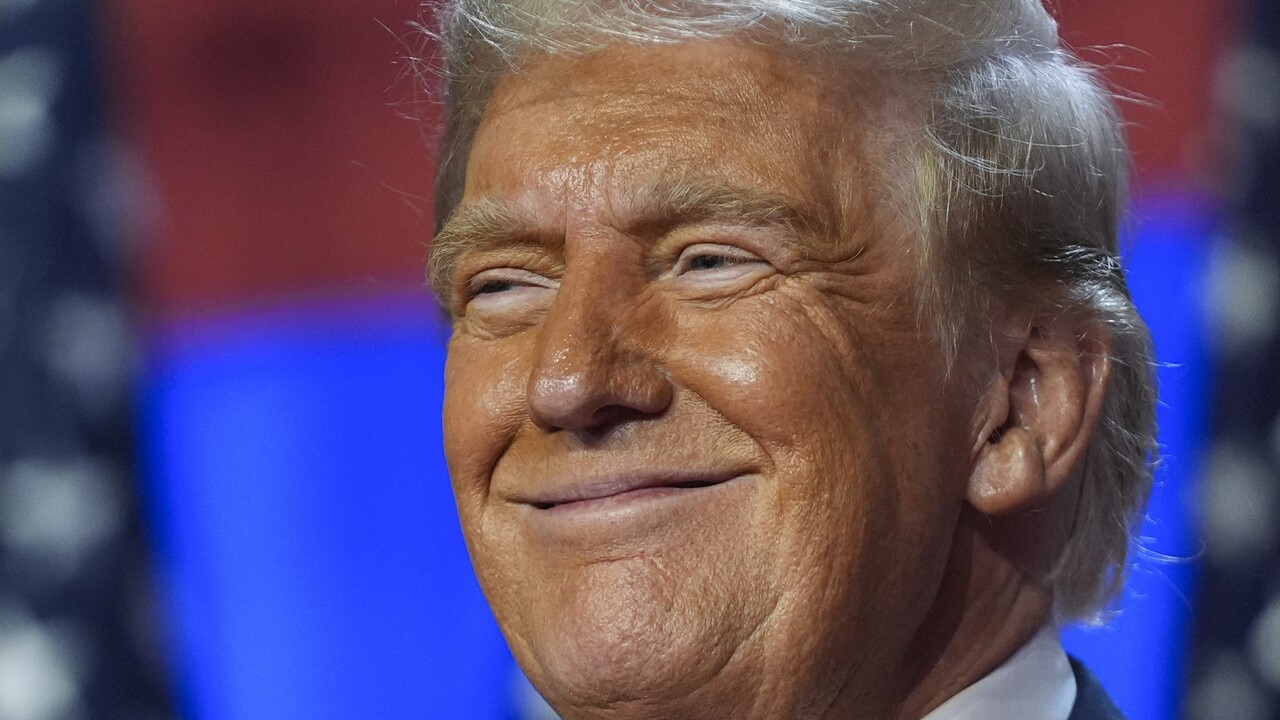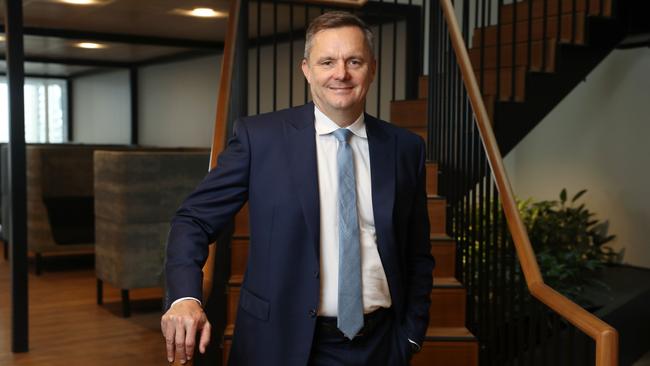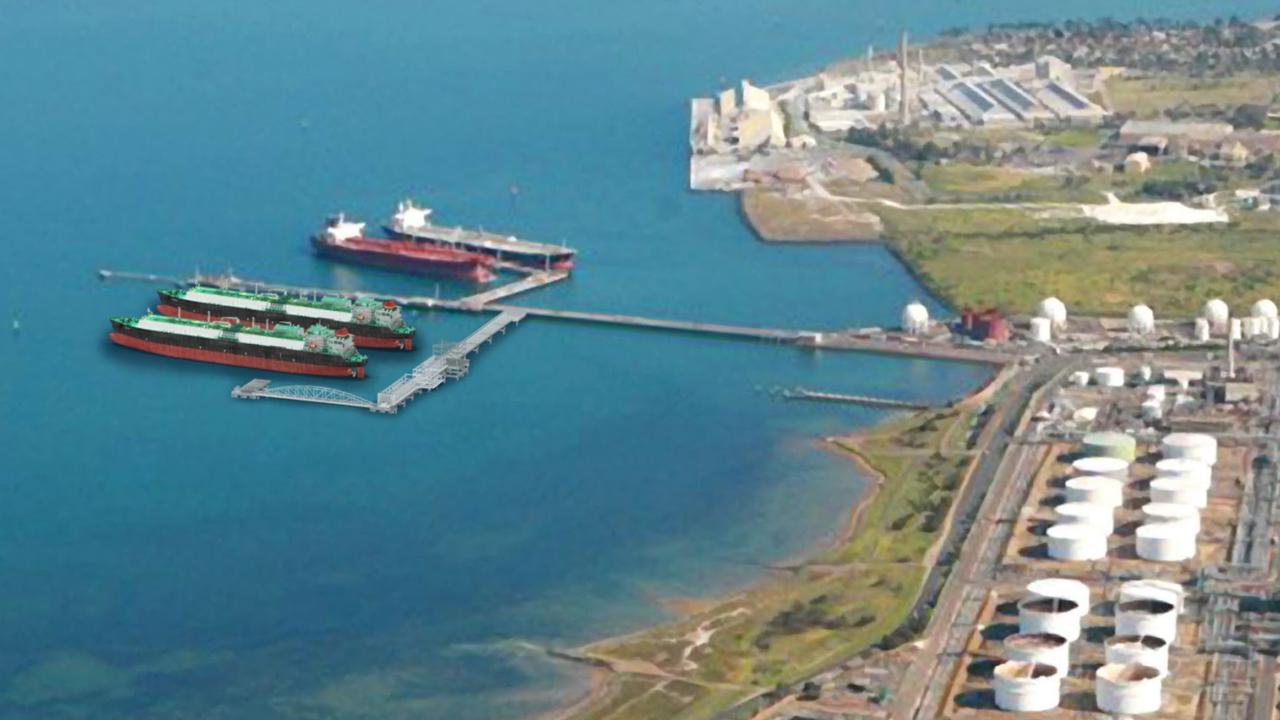Trump’s second term is about defining legacy
The revival of Donald Trump’s power sends a clear message about the rise of a pro-business US projecting strength around the world.

Business
Don't miss out on the headlines from Business. Followed categories will be added to My News.
The Trump proxy shares were calling it long before the result was in.
Donald Trump had been pulling ahead, so were the likes of BlueScope Steel (up 5.7 per cent), fintech Block (4.1 per cent) while energy play Worley, Computershare and QBE all jumped more than 3.5 per cent.
All of these companies are highly exposed with operations inside the US and all benefit from a stronger US dollar. Welcome to Trump Mk II.
The revival of Donald Trump’s power sends a clear message about the rise of a pro-business United States projecting strength around world.
This will have major implications on global trade, energy and even around how big tech and AI evolves. Big-spending renewable programs and a US scramble for battery technology under Joe Biden are set to be wound back or redirected.
Trump’s return stands to reshape some industries, including global carmaking which is in a state of flux from EVs. His push to slap tariffs on everything coming into the US creates even greater tension between China and the US, and will be felt across all trading partners. Australia will need leadership over how it defines itself as a free-trading nation.
Australian businesses seeking offshore exposure will see the US as the place to invest over a riskier Europe or fragmented Asian strategy.
Australia was a winner under Trump’s last presidency and there’s no reason why this can’t be the case again.

Trump in 2025 becomes a second-time president and this means his term will be all about legacy. There will be tariffs, there will be strategic competition, but ultimately a better deal for the US.
A big economic theme of Trump’s campaign has been around the slashing of corporate taxes and deregulation. During his first term he slashed the corporate tax rate from 35 per cent to 21 per cent which helped the US economy rebound faster than most western economies from the Covid-19 pandemic.
This will again put intense pressure on Australia to revisit the 30 per cent corporate tax rates. The focus of Australia’s own big investments in renewables, from hydrogen to batteries, will slowly shift to energy security.
A proposal under the then Turnbull government, when Trump was first elected, to cut company tax for big business was abandoned and that benefit instead went to small to mid-sized business.
A newly emboldened Australian business lobby will seek to put this back on the agenda and fast. This comes after Australian business was lumped with additional costs under industrial relations changes.
So too will be the discussion about rising regulation, however the Albanese government is unlikely to rush to make workplaces more flexible or loosen union power.
Trump’s second term is not without risk. Trump’s policies, if taken in aggregate, would increase the US budget deficit by as much as $US8 trillion over the next decade. Inflation represents the unknown factor here, which wasn’t an issue during his first term. So too the capacity for debt markets to handle additional debt.
His jawboning on the US Federal Reserve to cut interest rates sets up a new economic clash.
Opening up a US trade war on too many fronts represents the biggest flashpoint for growth-sapping inflation.
However, it also sets Trump up for doing what he does best – striking a deal. The new president is not going to want to decouple from China entirely; rather it paves the way for China to switch from buying Airbuses to Boeings, and soybeans for cheap cars.
Hold on Australia. The wild ride with Trump is about to begin again.
Sun shines
There was the first real look at life for Suncorp without its bank. After the drawn-out sale of its regional banking arm to ANZ, Suncorp finally got its wish: becoming a pure-play insurer.
Indeed, Suncorp boss Steve Johnston outlined a new ambition for the group to become the leading trans-Tasman insurer.
This includes being having number one market share across motor and home in brands that cover AAMI, GIO and Suncorp. And through names like Vero, Johnston wants to secure a dominant position in commercial, personal injury and New Zealand.
The Suncorp CEO wants to lead the way in digital, and the path to getting there is through modernising its insurance platform that sits at the heart of the business.
This will involve a step up in investment in technology. This investment is designed to prepare the insurer for AI-based technology – something which promises significant upside for the industry.

Already Suncorp is seeing the benefits of investment in core technology over the past four years. Some 50 per cent of insurance claims are now lodged online, and this can run to as much as 70 per cent during weather events.
At the same time it already has more than 100 AI models in place and its chatbots have responded to more than 2 million requests.
Suncorp continues to expect net proceeds from the sale of Suncorp Bank to be about $4.1bn, which is expected to be returned to shareholders some time in the first quarter of the calendar year 2025. However there is a rider to this, which Johnston says as “subject to the capital needs of the business”.
At this stage it seems the tech spend will be funded from existing earnings, and this drove a 3 per cent jump in Suncorp’s shares.
Suncorp’s strategy for the next three years will be built around shifting its insurance platform to a fully digital business and deploying new artificial intelligence capabilities for customers, and to boost the back end.
Without a capital-hungry bank to invest in, Suncorp has a lower intensity which helps to boost earnings ratios. However as a pure-play insurer this means its profits are likely to be more volatile.
Johnston says Suncorp’s “time, resources and capital” are now devoted to fully supporting insurance customers and growing its brands.
Suncorp’s bank dominated the business, but a near-death experience during the global financial crisis prompted a rethink and a sharp pull back in risk. This allowed the insurance business growing up around it.
eric.johnston@news.com.au
Originally published as Trump’s second term is about defining legacy



